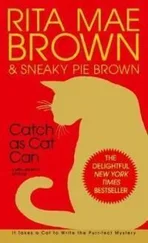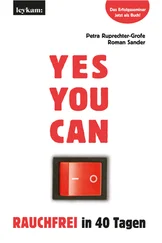Quantitatively, the vineyards of Bas Languedoc produce more wine than the other three great French wine departments combined. Qualitatively, with one or two exceptions, the wine of Languedoc has all the bouquet, body and taste of flat root beer. The considerate host serves an ordinary Languedoc wine only with leftover meat loaf, and preferably to guests whom he’d rather not see again.
It is, in the main, really bad juice.
Fortunately for France, the vintners, grape pickers, bottlers and the vast majority of the rest of the population consume the bulk of Languedoc ’s wines. France exports only its great wines from the vineyards of Burgundy, Bordeaux and Champagne, which are justly famous for quality and excellence.
I learned all about viniculture in Montpellier. The first thing I learned was not to drink the local vins du pays.
I was probably the only water drinker in town. However, I didn’t go to Montpellier for either the wine or the water. I was there to hide. Permanently, I hoped. I had reached the pinnacle of a criminal mountain and the view wasn’t that great. Now I wanted an honest valley to shelter me in its hollow.
I had passed through Montpellier, driving from Marseille to Barcelona, during one of my first bad-check forays through Europe. Outside of town I had parked beneath a huge olive tree and picnicked on cheese, bread, sausages and soft drinks I’d picked up in the city. Close at hand, pickers swarmed like ants through a vast grape orchard and far away the snow-tipped peaks of the Pyrenees glistened in the sun. I felt comfortable, at ease, almost happy. As if I were home.
In a sense, I was. This part of southern France was my mother’s native land. She had been born here and after she married my father, and following the breakout of guerrilla warfare in Algiers, her parents had returned here with their other children. My maternal grandparents, several uncles and aunts and a covey of cousins still lived within an hour’s drive of the olive tree. I quelled an impulse to turn aside and visit my mother’s people and drove on to Spain.
I had never forgotten that tranquil, enjoyable interlude near Montpellier. And when, at the ripe old age of twenty, I decided to retire from my life as a counterfeit person, dealing in counterfeit wares, I chose Montpellier as my retreat. I was not happy that I had to return there behind yet another counterfeit identity, but I had no choice.
Montpellier, in many ways, was ideal for my purpose. It was not a tourist attraction. It was situated too far inland from the Mediterranean to lure the Riviera set, yet close enough that a seashore outing was available at the end of a short drive.
It was large enough (80,000 population) that an American taking up residence would not excite undue curiosity, yet too small to command a major airport or to entice large hotel operators. There were no Hiltons or Sheratons in Montpellier and its tiny air facility served only light aircraft. The lack of air service or swank hotels weighed in my favor. There was very little chance of my encountering a pilot, a stewardess or a hotel employee who might recognize me.
I presented myself in Montpellier as Robert Monjo, a successful author and screenwriter from Los Angeles, “successful” in order to explain the sizable account I opened in one of the local banks. At that, I didn’t deposit all the moneys I took with me to Montpellier. Had I done so, it might have aroused some curiosity as to my actual livelihood. I retained treble the amount in cash, hidden away in my luggage. As a matter of fact, the people of Montpellier were not prone to pry. I was asked only the necessary and perfunctory questions as I went about the business of becoming an expatriate citizen of the town.
I bought a small cottage, a charming and gracious little house with a tiny back yard shielded by a high board fence, where the previous owner had cultivated a minuscule garden. The operator of the store where I bought furnishings for the house lent me the services of his wife, a skilled interior decorator, in selecting the proper furniture and arranging the decor. I fixed up one room as a study and library, reinforcing my image as a writer engaged in research and literary creation.
I bought a Renault, one of the more comfortable models but not luxurious enough to attract attention. Within two weeks I felt at home, secure and content in my new surroundings.
And if God had shorted the Mediterranean Languedoc on good grapes, He made up for it in the people. They were a sturdy, amiable, courteous and gregarious populace in the main, quick to smile and to offer any assistance. The housewives in my neighborhood were always knocking on my door with gifts of pastry, fresh baked bread or a serving from their dinner pots. My immediate neighbor, Armand Perigueux, was my favorite. He was a huge, gnarled man of seventy-five and he still worked as an overseer in a vineyard, commuting to and from work on a bicycle.
He called the first time bearing two bottles of wine, one red and one white. “Most of our wines do not suit American palates,” he said in his booming, yet gentle, voice. “But there are a few good wines in the Languedoc, and these two are among them.”
I am not a tastevin, but having drunk of the good wines I determined never to sample the others. But the people of Montpellier drank more wine than any other liquid. A lunch or dinner was not served without wine. I have even seen wine consumed at breakfast.
From Armand I learned that God actually had nothing to do with Languedoc ’s poor record as a producer of quality wines. Nearly one hundred years past, he said, an insect, the phylloxera, had ravaged all the vineyards of France, almost dealing a death blow to the wine industry. “I have heard that this pest was brought to France attached to the roots of vines imported from America,” said Armand. “But I do not know that to be true.”
However, Armand told me, he did know it to be truth that the great bulk of France ’s grape vines were of American rootstock, immune to the wine bug, onto which French plants had been grafted. And, he said slyly after I had gained his confidence, Americans and other nationals probably consumed more Languedoc wines than they were aware of.
Almost daily, he informed me, tanker trucks filled with the cheap wines of the Languedoc chugged northward to the great wine districts, where their cargoes were blended with the choice wines of Burgundy and Bordeaux. “It is called stretching, like adding water to whiskey,” said Armand. “I do not think it is honest.”
Montpellier was a good place to learn about wines, he said. “We have the Wine University of France right here in our city,” he said proudly. “You can go there and study.”
I never visited the university. Since I had no taste for wine, although I drank it on social occasions, I had no yen to acquire a knowledge of wine. I was satisfied with the bits and pieces of information imparted by Armand. He was a good teacher. He never gave tests and he never graded me.
It was difficult for me to stay busy. Loafing is hard work. I spent a lot of time driving around. I would drive to the coast and spend a few days exploring the sand dunes. Or I would drive to the Spanish border and spend hours hiking in the foothills of the Pyrenees. Occasionally I visited Armand’s vineyard or the orchard of another winegrower. At the end of the first month, I drove to the small village where my grandparents lived and spent three days with them. My grandmother corresponded regularly with my mother, and she was aware of all the happenings at home. I wormed them out of her discreetly, for I did not want her to know I had exiled myself from my family. My mother was well, as were my sister and brothers. My father was still courting my mother, which my grandmother found amusing. My mother had apparently told my grandmother that I was “hitchhiking” around the world, seeking a goal and attempting to decide my future, and I fostered that impression during my visit.
Читать дальше











